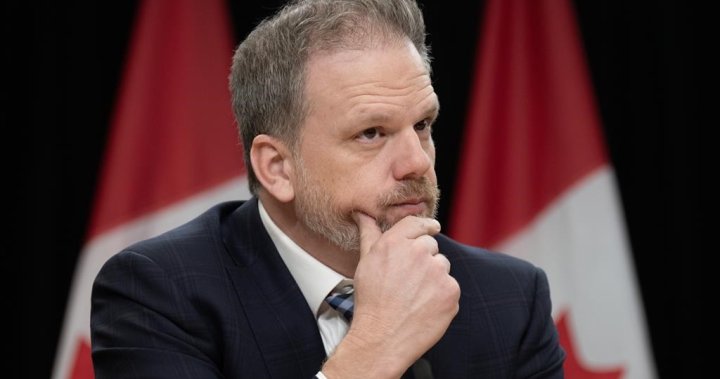Health Minister Mark Holland says while some provinces are using private health care as a stop-gap to try to address system strains, health-care delivery must stay publicly funded.
His comments come after two doctors last week warned that the crisis in Canada’s emergency rooms has become “horrific and inhumane,” and after the Ontario Hospital Association warned last week that a “huge spike” in population and aging residents is a major challenge for provincial health-care providers.
“We’re not going to allow that to happen. Let me be very clear, Canada and Canadians are deeply proud of having a public health-care system,” Holland said in an interview with The West Block guest host Eric Sorensen.
“We know that not only is it a deterioration of care to allow private care to expand, but it really has a huge injurious impact on costs as well. It’s way too expensive.”
Provinces like Ontario are looking to allow more private clinics to ease wait times for surgeries and medical imaging.
While the health minister is steadfast on upholding the Canada Health Act as written, he did acknowledge there will have to be more discussion around virtual health care that is primarily delivered privately.
Holland says work continues to ease pressure on a heavily strained health system, almost a year after a massive expansion to the Canada Health Transfer program was announced.
Get the latest National news.
Sent to your email, every day.
“So, the system is under a lot of strain that’s natural coming out of the pandemic, but we’re here to work with provinces and territories,” Holland said.
Ottawa is offering the provinces and territories $196.1 billion over the next decade, with $46.2 billion being new money, as announced last year for health-care delivery.
Since then, four deals for the enhanced Canada Health Transfer have been finalized with British Columbia, Alberta, Nova Scotia and Prince Edward Island.
Holland defended the government’s timeline on securing these agreements, saying that its main focus is getting them right.
“We’re making sure that the moneys that are being invested are going to the priorities Canadians care about: reducing wait time, making sure they have access to a family health team and a family doctor,” Holland said.
“You’re going to see the rest of the agreements flowing out over the next two months. And I’m really excited to be able to share the fruits of that work, but it’s important that we get it right, and that’s what we’ve been focused on.”
Earlier this month, the American Federal Drug Administration (FDA) approved Florida’s application to bulk import prescription drugs from Canada.
The move caused concern that American drug imports could threaten the Canadian drug supply due to the population disparity.
“There is no way any country is going to raid our drug supply in a way that endangers domestic supply,” Holland told Sorensen.
Eight other states have their own legislation allowing them to import Canadian drugs, subject to FDA approval. New Hampshire previously applied, but the FDA rejected its application in 2022.
The minister says he’s had productive conversations on the subject with U.S. ambassador to Canada David Cohen and his American counterpart, Health Secretary Xavier Becerra.
“Where Canada can expand our pharmaceutical industry and export drugs in a way that does not hurt domestic supply, of course we’re there. We want to be supportive of our G7 partners, and particularly our relationship with the United States,” Holland said.
“But that cannot come at the cost of Canada’s ability to supply its own population. Secretary Becerra and Ambassador Cohen indicated their support for that position.”
© 2024 Global News, a division of Corus Entertainment Inc.




